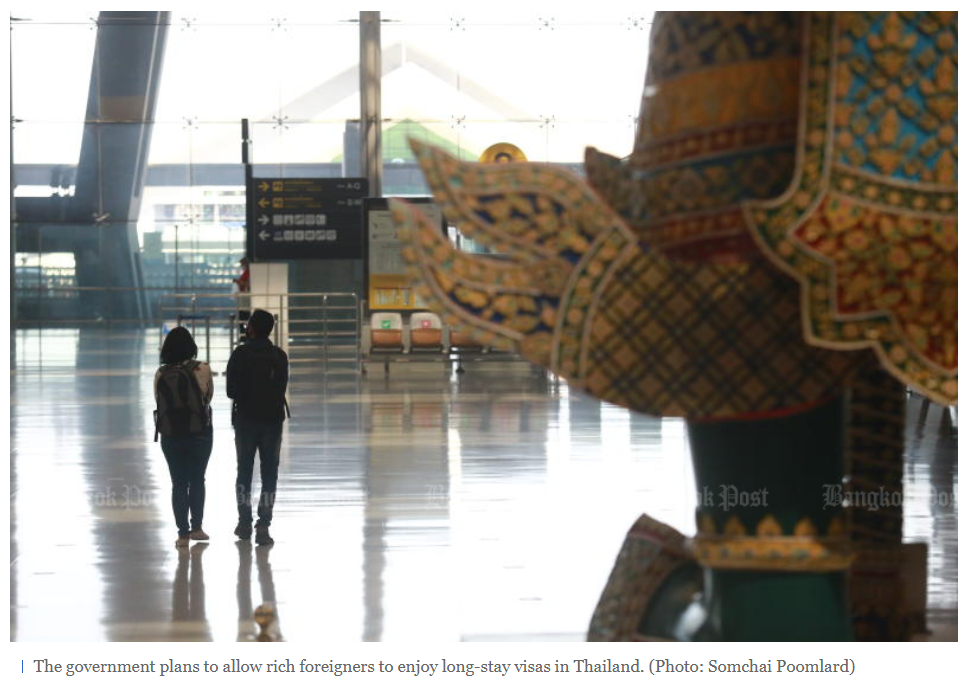Thailand: Long-stay visas, EVs to help spur economy
Deputy Prime Minister Supattanapong Punmeechaow is planning to propose to the cabinet a plan to allow rich foreigners to enjoy long-stay visas in Thailand.
According to Mr Supattanapong, the Centre for Economic Situation Administration (CESA) approved in principle on June 4 a scheme to offer long-stay visas to four groups of foreigners — rich global citizens, wealthy retirees, rich professionals working in Thailand, and highly skilled professionals.
These groups will be entitled to a visa of up to 10 years and have the ability to own land and property.
“Rich global citizens” has no age restrictions but this group is required to invest at least US$500,000 (16.35 million baht) in government bonds, property or foreign direct investment. They must also have at least $80,000 in income over the last two years and $1 million in assets.
Meanwhile, wealthy retirees are required to be 50 or over and have an annual income of $40,000 and invest $250,000 in government bonds or real estate.
For professionals interested in working from Thailand, which includes individuals who work remotely or employees of large companies that are close to retirement, they must have $40,000 per year in income with an educational background of a master’s degree or higher or rights in intellectual property and have five years experience in research.
Experts in digital services are required to work for SET-listed companies or work for at least three years in private companies which have an income of more than $50 million a year. High-skilled professionals with no age limits are required to work in target industries or academic experts in universities or state agencies.
Mr Supattanapong said the government remains committed to continuing to stimulate investment, particularly in digital and electric vehicles (EVs).
The government plans to restore the economy partly through its effort to make Thailand a regional production hub for EVs, with measures to strengthen the EV industry to be announced early next year, he said.
The EV hub initiative is part of a plan to invigorate the economy under a decarbonisation concept.
Several panels involving EV industry development are drafting measures that are expected to be implemented post-pandemic, Mr Supattanapong said.
They include plans to build more EV infrastructure and attract foreign EV and battery manufacturers with investment incentives, he added.
“Infrastructure will be the main attraction and we will encourage leading players in the supply chain to relocate their production sites to Thailand,” Mr Supattanapong said during a seminar titled Restart Thailand to gather ideas on economic development.
He said the government will develop the economy under the decarbonisation concept, which is in line with a global campaign to reduce carbon emissions.
Electricity generation through clean energy will be a key part of this plan.
Source: https://www.bangkokpost.com/business/2149439/long-stay-visas-evs-to-help-spur-economy


 Thailand
Thailand




